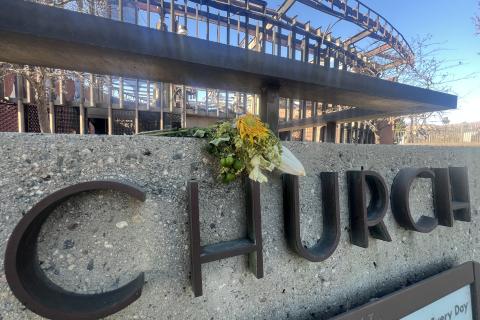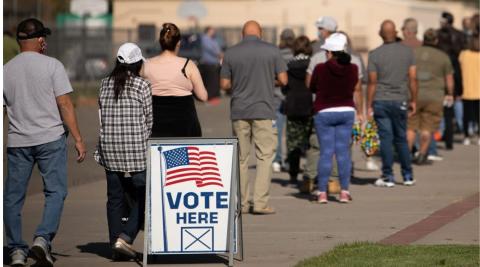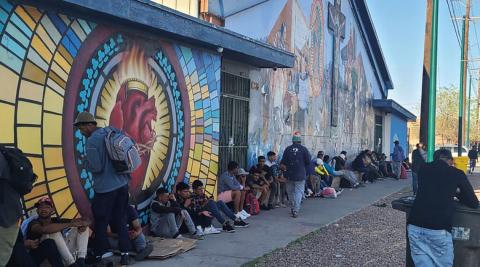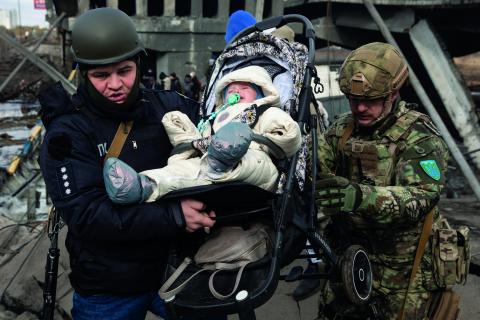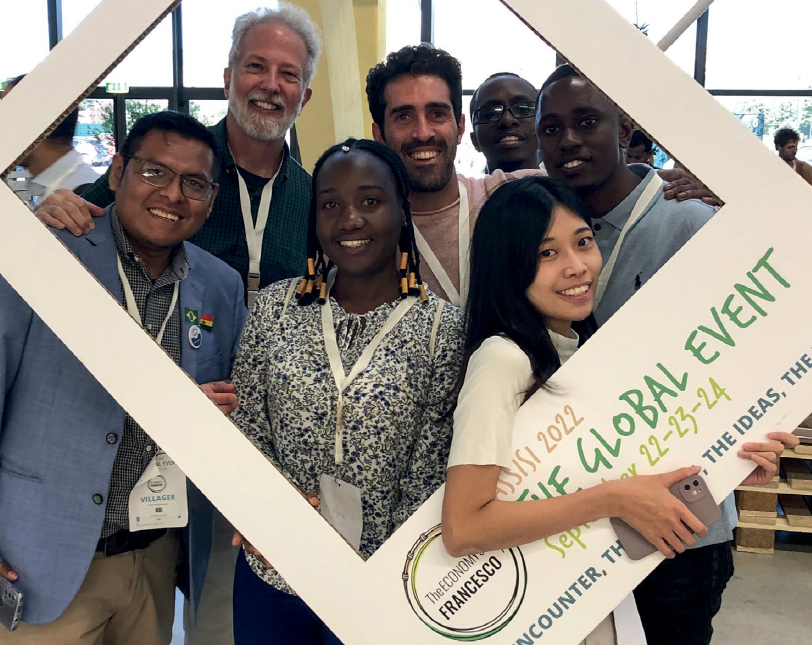
Photo courtesy of John Mundell
When I think back to significant milestones in my more than 40-year career as an environmental consultant, I often remember witnessing key events that were led by people who became leaders in the fight to protect our common home—our land, our water, our air, our everything. I use “our” here to mean not just humans, but everything—all that the Earth holds.
So, when Pope Francis came out with his encyclical letter, Laudato Si’: On Care for Our Common Home, in 2015, I was so excited. I have had a love and appreciation of our Earth since I was young.
For example, the publishing of the American marine biologist Rachel Carson’s influential book Silent Spring in 1962 on the harmful effects of the indiscriminate use of the pesticide DDT, or the work in the 1970s by the English primatologist Jane Goodall on chimpanzees, and the French oceanographer Jacque Cousteau on the vulnerable condition of the oceans raised my awareness of humankind’s impact on the health and well-being of our natural biodiversity.
I remember that after witnessing the first Earth Day in 1970, I knew that part of my vocation would always include making sure that the Earth was well taken care of so that God’s creation, and all the people that depend on it, would be preserved and have everything needed to continue to thrive.
And here was a pope that had used the best-known science to inform us about the dangers we faced in the current state of our planet. On top of it, he wasn’t just presenting good thoughts and theological reflections, but also calling for significant action in reducing our harmful impacts on the world.
I received an invitation from the Vatican in July 2015, the month after Laudato Si’ had been published, to attend a meeting specifically called by the pope to begin to implement a plan for action.
I came to the Vatican meeting after having been part of the initial forming of the Archdiocese of Indianapolis’ Creation Care Commission. Since that time, the ArchIndy group has worked to educate local parishes, priests and youth; host ‘green’ activities at the National Catholic Youth Conference; develop the first diocesan pilot sustainability program; advocate for environmental policy changes at the Indiana Statehouse; and build one of the most comprehensive Catholic creation care websites in the U.S. (ourcommonhome.org).
In 2018, the Dicastery for Promoting Integral Human Development formed a steering committee and several working groups to help develop specific actions targeted at achieving seven Laudato Si’ goals. Work on a digital platform continued during 2020 and 2021, and the LSAP (Laudato Si’ Action Platform) launched in November 2021.
After launching the LSAP, a survey soliciting input from all participants and sectors was completed to evaluate its performance. All participants found the overall process encouraging, and the evaluation process itself was an exercise in synodality, where criticisms and ideas for improving the enrollment and assessment process were freely given and listened to, and improvements in communication were all considered.
Preparing the platform for the future
Realizing the magnitude of the challenge faced by mobilizing the more than 1.3 billion Catholics and 2,900 dioceses and archdioceses worldwide, the Vatican decided to appoint a director of the LSAP in July 2022 to provide additional support and guidance to its future development.
As I accepted this appointment, many people across the globe told me about the challenge they are facing in seeking to be better environmental stewards.
While I fully understand the feeling of frustration and confusion by those surveyed, and am aware that Pope Francis’ message has not yet found resonance among the faithful and many priests and bishops, I am convinced that we can and will do more to educate, support and lead the Church in this mission—an ancient call that goes all the way back to the Book of Genesis.
This fundamental aspect of our faith—the call for stewardship of creation—has been constantly reinforced during the last 50 years by the writings and speeches given by Saint Pope Paul VI to Pope Benedict XVI, as care for creation has become an ever-growing concern for humanity and an integral part of Catholic social teaching.
As you can imagine, bringing ideas together to represent all the groups and from all over the world is a big task! As director of the LSAP, I feel part of my job is to bring hope to those already committed to the goals of Laudato Si’ by affirming the importance of this work within our faith context, asserting that each of us has an important role to play, and to confirm for people that, backed by science, our actions really do make a difference in improving the health and well-being of our communities when we care for God’s creation.
We need more than spiritual leadership
All of us involved care deeply about taking care of the Earth and everyone and everything that lives on it, so we’re passionate about it. That can be a good thing, because we bring lots of ideas and possible solutions to the table.
But then, sometimes, as they say, the perfect can become the “enemy” of the good, and it makes it difficult to get things done because we can’t narrow down our ideas to a doable plan. Strong opinions and convictions can make people forget to treat one another as a neighbor to be loved; conflicts arise and communication is hindered.
Being in a faith-based institution like the Catholic Church brings its own set of challenges to effective leadership. Leadership can often be misunderstood as exercising authority, or that certain vocations have historically been seen to hold the last word in decision-making. Today, the Church is seeking to make space for laypeople to hold responsibility and lead decision-making as well, and this process is not a smooth one.
There are growing pains as we learn to recognize the gifts that various vocations can bring. Some gifts are more spiritual in nature, some are more concrete in nature, and we need all those gifts! We also have to be attentive to not confuse spiritual leadership as the only kind that is needed. Not only can that slow processes down, but it can also burden someone with a responsibility that is not necessarily their strong suit.
And when you talk about leadership in faith-based organizations, it is even more challenging, because not only might we seek wise leaders within a faith community, but you have to balance that leadership with historical practices and teachings believed to be divinely inspired. I’m in the Roman Catholic Church, and I believe that Jesus left us a structure of leadership with the pope, bishops and priests, and at the same time, he also gave dignity to all the Christian community when he said, “Where two or more are present in my name, there I am in the midst of them.”
Perhaps the kind of authentic Christian leadership needed is the guarantee that when we “live and love right,” it is Jesus who provides the leadership needed.
Be an environmental leader in your faith community
Today, we continue to witness environmental leadership throughout the world, often led by young activists like Greta Thunberg or Isra Hirsi, whose single-mindedness has inspired the next generation to strike for changes to national and international fossil fuel use. I know it can be challenging to know where to start in each of our parts of the world when facing today’s ecological crises. On one hand, they are so big, but on the other hand, scientists are noticing how much of a positive impact we are already having on the environment when we act together.
We just have to keep going! Here are a few things I tell people who ask where they can begin:
Listen. Keep your ears and eyes open to the ecological challenges your community may be facing, and start conversations about caring for the Earth.
Reflect. Consider your current lifestyle, practices and intentions in relationship with nature and others. What kind of person do you want to be, and how does your lifestyle reflect that? Do the same thinking for your faith community.
Plan. Consider small steps in your community that you can take to be a better caretaker of the Earth.
Act. Follow through on your committed steps with action. Lead by example in your own life as you seek to engage your community.
Perhaps not everyone can be a Rachel Carson, Jane Goodall or Greta Thunberg, but you can start with your own life and begin the daily work of protecting the planet to make a difference. And, who knows, maybe that initial small act might one day start a new revolution, one that we sorely need right now all over the world to make a difference.






